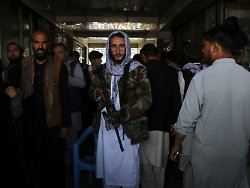Sunday, September 5th, 2021
Power vacuum in Afghanistan
US chief of staff warns of civil war
In the Pandjir Valley, the Taliban and resistance fighters are fighting fierce battles. US Chief of Staff Milley doubts that the Taliban can build a government. Other Islamists, for example from IS or Al-Qaeda, could fill this power vacuum.
US Chief of Staff Mark Milley warns of civil war in Afghanistan. “I don’t know whether the Taliban will be able to consolidate their power and build a government,” Milley told Fox News at Ramstein Air Force Base. This could lead to a reconstitution of Al-Qaeda or a strengthening of the extremist militia Islamic State (IS) or countless other militant groups in Afghanistan over the next three years. “My military assessment is that the situation is likely to develop into civil war,” said Milley. “It could be that within 12, 24 or 36 months we will see how terrorism, starting from this region, is growing again. And we will watch it.”
The US government’s most important argument in favor of troop withdrawal was that the Al-Qaeda terrorist network had in fact been broken up and was no longer able to attack targets in the US from there. According to the United Nations, however, al-Qaeda was already present in almost every second Afghan province before the withdrawal of international troops.
In the Pandjir Valley there is currently fierce fighting between the Taliban and the National Resistance Front of Afghanistan (NRFA), in which forces have come together under the militia leader Ahmad Massoud. Both sides claim to have the upper hand there. The Pandschir Valley northeast of Kabul is a Tajik stronghold in the multi-ethnic state. Ahmad Massud is the son of one of the most important leaders in the war against Soviet troops in the 1980s, who were unable to take control of the valley. During the first Taliban rule from 1996 to 2001, Masud’s father also managed to repel attacks by the Islamists.
The Taliban would like Germany to have diplomatic relations and financial aid. “We want strong and official diplomatic relations with Germany,” said Taliban spokesman Sabiullah Mujahid of “Welt am Sonntag”. Accordingly, the Taliban hope for financial support, humanitarian aid and cooperation in health, agriculture and education – also from other countries.
.
